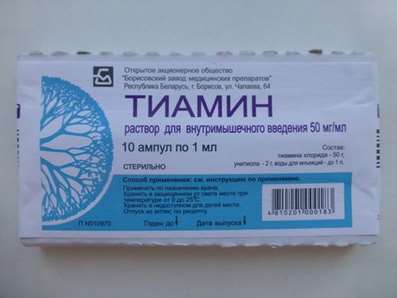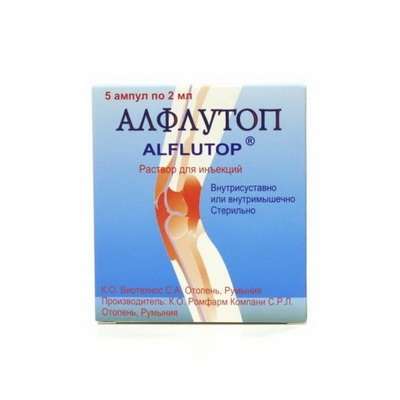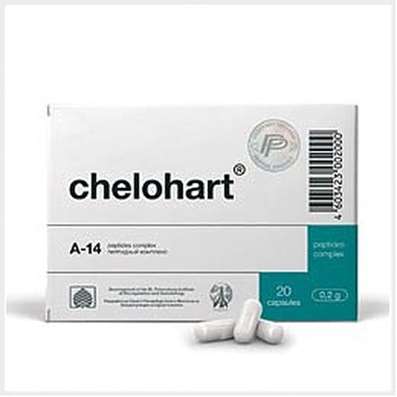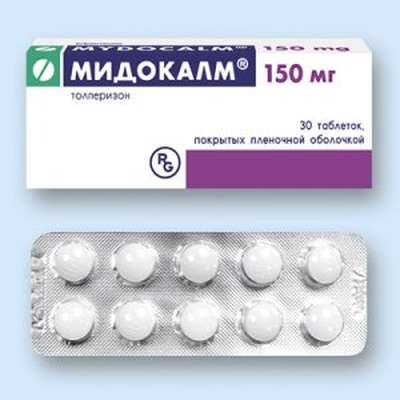Instruction for use: Tenoten
I want this, give me price
Trade name of the drug – Tenoten
Active substance: Antibodies to S-100 brain-specific proteins (Anticorpora ad proteino S-100 cerebrospecifico)
Dosage Form: tablet
Composition(per tablet):
active substance:
antibodies to brain-specific proteins S-100 affinity purified * 0.003 g
* Applied on lactose as a water-alcohol mixture with a content of no more than 10-15 ng / g of the active form of the active substance
Excipients: MCC - 0.03 g; magnesium stearate - 0.003 g; Lactose monohydrate (Lactose) 0.267 g
Description of Tenoten
Tablets plano-cylindrical shape, and the notch chamfer with white to almost white color. On the side with the mark applied inscription «MATERIA MEDICA», on the other - «TENOTEN».
Pharmacotherapeutic group: Anxiolytic (tranquilizer), nootropics
ATX Code
N05BX Anxiolytics other
The nosological classification (ICD-10)
F06.6 Organic emotionally labile [asthenic] disorder: Asthenic disorders, asthenic conditions, asthenic disorder asthenic disorders, asthenic conditions, asthenic phenomenon, asthenic-vegetative disorders, asthenic-depressive disorder, asthenoneurotic condition, asthenic-depressive disorder, asthenic-depressive state, asthenic-hypochondriac phenomena, asthenic neurotic disorder, hypochondriacal and asthenic-hypochondriac state, Organic asthenic-depressive disorder, psycho-asthenic disorder.
F41.9 Anxiety disorder, unspecified: Severe anxiety; neurosis-like symptoms; neurosis-like disorder; neurosis-like state; Neurosis with anxiety symptoms; Neurosis with anxiety; Neurotic disorders with anxiety syndrome; The acute situational stress and anxiety; The acute situational stress anxiety; Acute anxiety attack; Depressed mood with anxiety elements; Psychopathy with a predominance of anxiety and worry; Sudden anxiety; Situational Anxiety Disorder; An anxiety condition; Soest; Anxious-delirium;
Disturbingly delusional component; anxiety; Anxiety; anxiety disorder; Anxiety disorders; Anxiety disorders in neurotic and neurosis-like states; Anxiety syndrome; Chronic neurotic anxiety; Sense of anxiety.
F43 Reaction to severe stress and adjustment disorders: adjustment disorder, stress condition, stress disorder.
F45 Somatoform disorders: Psychosomatic diseases, Psychosomatic disorders, psychosomatic disorder, anxiety states with somatic diseases, Functional psychosomatic disorders of the cardiovascular system.
F48.9 Neurotic disorder, unspecified: Secondary neurotic symptom; Other neurotic state; Neurosis; Neurosis with increased irritability; Neuroses; Neuroses of all kinds; Neuroses with inhibition; neuroses of the heart; Neurotic disorders in alcoholism; Neurotic disorders with inhibition; Neurotic disorders with anxiety syndrome; Neurotic reactions; Neurotic symptoms of alcoholism; Neurotic state; The neurotic syndrome; neurotic disorders; The attack of neurological dysfunction; School neurosis; Emotional stress.
F60.3 Emotionally unstable personality disorder: Change mood, mood variability, mood lability, mood disorders, mood Disorders, Instability emotional background, mood swings, Psychic lability, mood disorders, Mixed emotional disorders, depressed mood, Status of emotional stress, Deteriorating mood, Emotional lability, Emotional tension, Emotional instability, Emotional shut off, Emotional detachment.
G90 Disorders of autonomic [autonomous] nervous system: angiodystonia, Vaso-vegetative symptoms, vasomotor dystonia, vegetative dystonia, autonomic dysfunction, vegetative lability, Vegetative-vascular disorders, autonomic dysfunction, Vegetative-vascular dystonia, Vegetative-vascular disorders, vasoneurosis, vegetative-vascular disorders, Dystonia vegetovascular, Dystonia neurocirculatory, neuro disorder, Cardiopsychoneurosis, Neurocirculatory dystonia of hypertensive type, Primary neurovegetative syndrome , The syndrome of vegetative dystonia.
G96.9 Central nervous system, unspecified: Violation of the central nervous system functions, Hereditary diseases of the CNS, Hereditary diseases of nervous system, Toxic damage to the central nervous system, Traumatic damage to the central nervous system, CNS depression, Functional impairment of the nervous system.
I67.9 Cerebrovascular disease, unspecified: Angio-neuropathy, Arterial angiopathy, brain hypoxia, Encephalopathy, cerebral vascular disease and age-related, Coma in violation of cerebral circulation, lacunarity status, Metabolic and cerebrovascular disorders, Violation of the blood supply to the brain, Cerebrovascular accidents, Violation of brain functions, Violation of the functions of the cerebral cortex, Violation of cerebral circulation, Cerebrovascular insufficiency, Acute cerebrovascular insufficiency, Acute ischemic attack, The defeat of the brain vessels, The progression of destructive changes in the brain, Disorders of cerebral circulation, The syndrome of cerebral insufficiency, Cerebral vascular insufficiency, Vascular encephalopathy, Vascular diseases of the brain, Vascular brain disorders, Vascular lesions of the brain, Functional brain disorders, Chronic cerebral ischemia, Chronic heart failure, Chronic cerebrovascular insufficiency, Chronic cerebrovascular insufficiency, Chronic violation of the blood supply to the brain, Cerebral insufficiency, Cerebral organic failure, encephalasthenia, Cerebrovascular pathology, cerebroasthenic syndrome, Cerebrovascular disease, cerebrovascular disease, cerebrovascular disorders, cerebrovascular disorders, Encephalopathy discirculatory.
R41.3.0 * Reduced memory: Forgetfulness, Violation memory, memory impairment, memory impairment, The weakening of memory, memory loss, memory impairment, Memory impairment in relation to recent events, Memory impairment in elderly patients.
R45.0 Nervousness: Internal voltage; Voltage; voltage nervous; tension; nervous disorders; tearfulness; Mental stress; emotional stress; Psycho-emotional tension in stressful situations; The reactions of nervous tension; State voltage; State of tension; Condition of permanent mental stress; stress; The feeling of inner tension; Emotional tension.
R45.4 Irritability and anger: tantrum; Anger; Dysphoria; Neurosis with increased irritability; exasperation; Increased irritability; Increased irritability of the nervous system; Irritability; Irritability with nervousness; Irritability with psychotic disorders; The symptoms of irritability.
R45.7 State of emotional shock and stress, unspecified: Exposure to stressors; Exposure to extreme situations; Long-term emotional stress; Neuropsychiatric stress; occupational stress; Psychological stress at interrail; Psycho-emotional overload and stress; Psycho-emotional tension in stressful situations; emotional stress; stress condition; Stress; The stress load; stress state; stressful situations; stress state; The stresses of everyday life; Chronic stress.
S06 Intracranial injury: brain injury, traumatic brain injury, The traumas of head injury, The consequence of traumatic brain injury, The consequence of TBI, Condition after traumatic brain injury, concussion, Craniocerebral trauma, Traumatic encephalasthenia, Traumatic brain injury, Traumatic brain injury, Brain Injury, skull Injuries, Brain Contusion, Cranial trauma, Traumatic brain injury, Traumatic brain injury with a predominantly stem lesion level, TBI.
Pharmacological Properties of TenotenPharmachologic effect
Pharmacological Effects - antidepressive, antiastenic, anxiolytic, nootropic, neuroprotective, anti-hypoxic, anti-stress, antiamnesic.
Pharmacodynamics
Tenoten has calming, anxiolytic (antianxiety) effects without causing unwanted hypno-gene and myo-relaxant effects. Improves tolerance psycho-emotional stress. It has stress protective, neuroprotective, antiamnestic, antihypoxic, neuroprotective, antiastenicheskim, antidepressant action.
The intoxication conditions, hypoxia after acute stroke has a neuroprotective effect, limits the damage zone, normalizes the processes of learning and memory in the CNS.
It inhibits lipid peroxidation.
Tenoten modifies the functional activity of the protein S-100, performing in the brain synaptic pairing (information) and metabolic processes. Providing a GABA-mimetic and neurotrophic effect, increases the activity of stress-limiting systems, the recovery processes of neuronal plasticity.
Indications for Tenoten
neurotic and neurosis-like states, psychosomatic diseases;
stress disorder with increased nervous tension, irritability, anxiety and autonomic responses;
moderately expressed organic CNS, including traumatic and dyscirculatory origin, accompanied by instability of the emotional background, irritability, memory loss, autonomic disturbances.
Contraindications for Tenoten
increased individual sensitivity;
Children under 18 years of age (children and persons under the age of 18 years shows the use of the drug for children tenoten).
Pregnancy and breast-feeding
The safety of the drug during pregnancy and lactation has not been studied. If necessary, dosing should be considered risk / benefit ratio.
Tenoten Dosage and Administration
Inside, not during meals. According to Table 1-2. at a time (keep in the mouth until complete dissolution). Take 2 times a day; if necessary - up to 4 administrations per day. The course of treatment - 1-3 months; If necessary, treatment can be extended to 6 months, or repeated after 1-2 months.
In the absence of a stable improvement within 3-4 weeks after starting treatment should consult a doctor.
Side effect of Tenoten
When used in the indications and at the recommended doses side effects have been identified. Possible reactions of individual hypersensitivity to the drug.
Overdose of Tenoten
No cases of overdose has not yet been revealed.
Interaction
Cases of incompatibility with other drugs has not yet been registered.
SPECIAL INSTRUCTIONS for Tenoten
The product contains lactose, and therefore it is not recommended for patients with congenital galactosemia, malabsorption of glucose or galactose, or congenital lactase deficiency.
Due to the presence in action tenoten activating properties, the latter taking the drug to carry out no later than 2 hours before bedtime.
Release Form
Lozenges. According to Table 20. in blisters made of PVC foil and aluminum foil. On 1 or 2 contour cell packages are placed in a cardboard box.
Storage conditions of Tenoten
In a dry, dark place at a temperature no higher than 25 ° C.
Keep out of the reach of children.
Shelf life
3 years.
Do not use beyond the expiration date printed on the package.
Conditions of supply of pharmacies
On prescription.

 Cart
Cart





